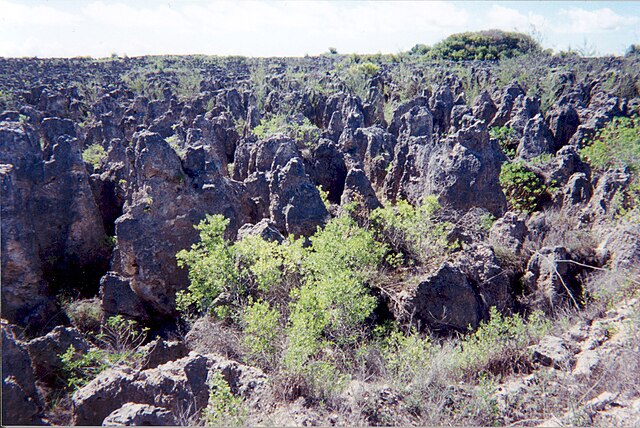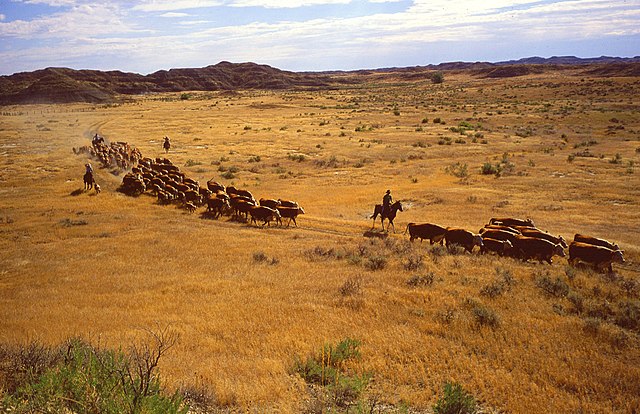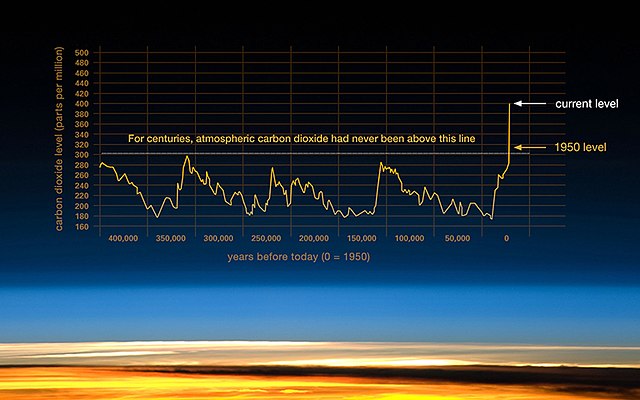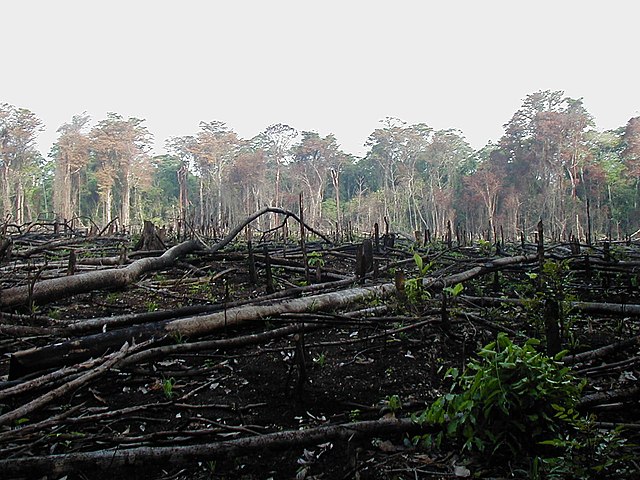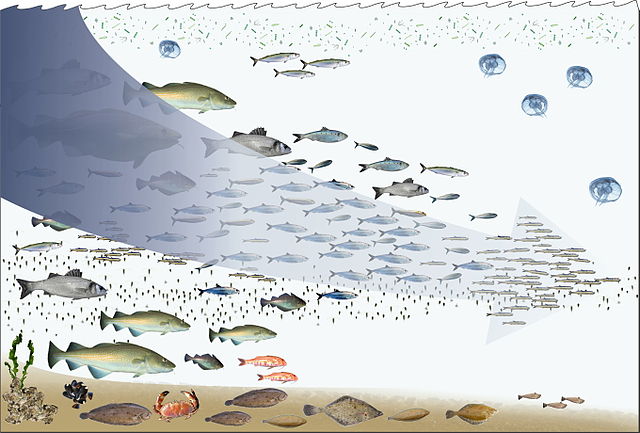Land degradation is a process in which the value of the biophysical environment also known as biochemical environment is affected by a combination of human-induced processes acting upon the land.
It is viewed as any change or disturbance to the land perceived to be deleterious or undesirable. Natural hazards are excluded as a cause; however human activities can indirectly affect phenomena such as floods and bush fires.
Serious land degradation in Nauru after the depletion of the phosphate cover through mining
Potato field with soil erosion
Overgrazing by livestock can lead to land degradation
Soil erosion in a wheat field near Pullman, US
Human impact on the environment
Human impact on the environment refers to changes to biophysical environments and to ecosystems, biodiversity, and natural resources caused directly or indirectly by humans. Modifying the environment to fit the needs of society is causing severe effects including global warming, environmental degradation, mass extinction and biodiversity loss, ecological crisis, and ecological collapse. Some human activities that cause damage to the environment on a global scale include population growth, neoliberal economic policies and rapid economic growth, overconsumption, overexploitation, pollution, and deforestation. Some of the problems, including global warming and biodiversity loss, have been proposed as representing catastrophic risks to the survival of the human species.
Chart published by NASA depicting CO2 levels from the past 400,000 years.
Lacanja burn
Fishing down the foodweb
Urban sprawl in California

